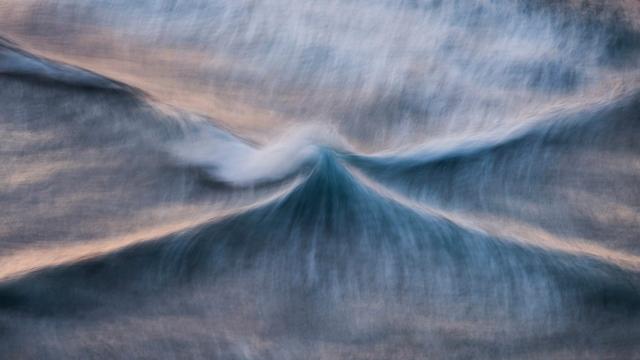If you grew up by the beach you may know just vital it can become to your figurative DNA. Even if you move away the salt somehow stays in your veins; your memories swimming with snippets of scorching sand, peeling noses and the feeling of elation when your body soars to the top of a wave right before it crashes.
Even if you didn’t grow up by the water, most Aussies are tangentially aware of how ingrained it is into our collective psyche.
But despite the cultural embrace, the Australian surf is an elusive creature. Unpredictable. Untameable. We’re warned from a young age not to turn our backs on her, because she might just choose to claim you.
But sometimes a glimpse of her nature is caught on camera. It isn’t easy, but if you have the passion to give it a shot, these tips may help.
Trent Mitchell is a professional photographer, and the winner of Nikon’s Surf Photo of the Year competition in 2018. He describes himself as an artist who, “celebrates the value of reconnecting with the living world through the dynamic power of nature, places and spaces.”
If you peruse his website or Instagram account, you’ll notice that the ocean is often his subject of choice. He had some interesting points to share with us, including the importance of gear protection, spontaneity and even meteorology.
The Weather Is Important
“Become a master at local weather forecasting, and I don’t mean checking the weather forecast on your phone and believing what you read. Seek a deeper knowledge to tap into. Understand how your local coastal areas behave under a multitude of conditions that include, light, wind, swell, tides, etc.”
Look After Your Gear
“Keep your gear protected. Having good water housing, weather proof cameras, durable tripods, lenses, bags, etc all help in making the shooting experience less stressful in the elements. Saltwater, spray and sand eat cameras. Look after your gear and it will reward you with beautiful images and last for years to come.”
Don’t Be Afraid To Experiment
“Experiment with different techniques, locations, times of day, lenses, seasons, swells – you name it. Just play and enjoy the experience of being close to the beach or in the ocean. We live in God’s country, lap it up!”
Lenses Matter
“If your taking photos from the shoreline or land, a good telephoto lens is almost essential. In the water anything from an ultra-wide-angle lens up to a mid-telephoto lens will be great. Generally, I prefer normal primes so I have to be in position and ready. A good 50mm in the water is a good place to start. I use the Nikkor 50mm f/1.8 for my underwater shooting.”
Editing Software Isn’t Always Necessary
“I’d say it helps finish your image well but there are far more important elements to deal with in the field to get the shot. The beauty of the ocean will shine through effortlessly if it’s captured well in-camera.”
Phones Have Limits
“Personally, I don’t believe great photography can be executed on a phone. Having said that I don’t use the term photography lightly right now. Phones are great for capturing exactly what you see, they can document a moment as well as any camera. Good snaps are achievable but as a working professional and an artist who prints work at large scale, I’m always looking to create images that can’t be made on a phone.
It requires all of the best camera equipment and lighting technology available to achieve the highest quality results. I feel the same principles apply to anyone. If your happy with snaps a phone that’s ok, if you want to print your work and master a craft, digital full frame cameras are the best starting point.”
You Need To Be Flexible
“Be ready for the magic. Always be ready and flexible when shooting seascapes. Coastal conditions change every waking moment of the day. Be ready to respond according to conditions and be open to capturing lucky, unplanned surprises that may happen.”
There’s More To It Than The Shot
“Surround yourself with a positive and supportive local surf photo community. Don’t give up, create for your own self satisfaction and fall in love with the process. Most importantly hit the ocean for a swim without a camera, life’s not all about getting the shot.”
